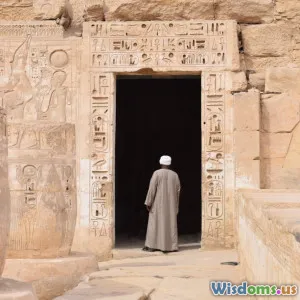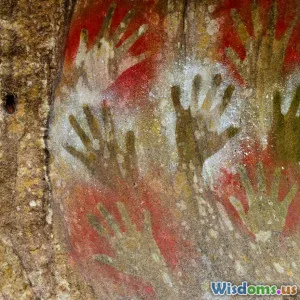
Wie Geheime Organisationen Kulturelle Normen Prägen
(How Secret Organizations Shape Cultural Norms)
5 Minute gelesen Entdecken Sie, wie geheime Organisationen gesellschaftliche Werte und kulturelle Normen durch subtile Mechanismen und historische Einflüsse beeinflussen. (0 Bewertungen)
Wie Geheime Organisationen Kulturelle Normen Prägen
Throughout history, secret organizations have wielded significant influence over the cultural norms and societal values of their time. These groups, often shrouded in mystery, have played pivotal roles in shaping the beliefs, practices, and ideologies that define various cultures. In this article, we will explore how these secret societies operate, their historical context, and the mechanisms through which they influence cultural norms.
Understanding Secret Organizations
Secret organizations can range from ancient guilds, fraternal orders, and religious sects to modern-day societies that operate behind closed doors. Notable examples include the Freemasons, the Illuminati, and various religious sects. While their specific goals and practices may differ, they often share common traits, such as exclusivity, a hierarchical structure, and a set of rituals or symbols that foster a sense of belonging among their members.
Historical Context
Historically, secret organizations have emerged during times of social upheaval or political instability. For instance, the Freemasons gained prominence in the 18th century Enlightenment period, promoting ideals of liberty, fraternity, and equality. Their influence extended beyond mere social gatherings; they played a role in the American and French revolutions, advocating for democratic principles that reshaped cultural norms in their respective societies.
Mechanisms of Influence
1. Creating Shared Values
One of the primary ways secret organizations shape cultural norms is by creating and promoting shared values among their members. These groups often have specific philosophies or ideologies that members are encouraged to adopt. For example, the principles of brotherhood and charity in Freemasonry foster a culture of community support and moral responsibility.
2. Networking and Social Capital
Members of secret organizations often find themselves in powerful positions across various sectors, including politics, business, and academia. This networking creates a system of social capital that allows members to influence decisions and policies that align with the organization's values. Such interactions often lead to changes in societal norms as these influential figures advocate for and implement new ideas.
3. Rituals and Symbols
Rituals and symbols play a crucial role in reinforcing the cultural significance of secret organizations. These elements help create a shared identity and a sense of belonging among members. For example, the use of specific symbols in Freemasonry not only signifies membership but also embodies the values and philosophies that the organization promotes. This shared identity can influence members' behaviors and attitudes in broader society.
Case Studies
To understand better how secret organizations have shaped cultural norms, let’s look at a few historical examples:
The Freemasons
The Freemasons have long been associated with the promotion of Enlightenment values. Their influence can be seen in the establishment of modern democratic institutions and civil rights movements. By advocating for liberty, equality, and fraternity, they helped shape cultural norms that prioritize individual rights and freedoms.
The Skull and Bones
This secret society at Yale University has had a significant impact on American elite culture. Many of its members have gone on to occupy powerful roles in government and business, perpetuating a culture of exclusivity and privilege that influences societal norms around success and leadership.
Conclusion
Secret organizations play an often invisible yet potent role in shaping cultural norms and societal values. By creating shared values, leveraging social capital, and employing rituals and symbols, these groups influence not only their members but also the broader society. Understanding their impact can provide valuable insights into our cultural landscape and the underlying forces that shape our beliefs and practices. As we continue to navigate an increasingly complex world, recognizing the influence of these clandestine groups may help us better understand the norms that guide our everyday lives.
Bewerten Sie den Beitrag
Benutzerrezensionen
Beliebte Beiträge




















